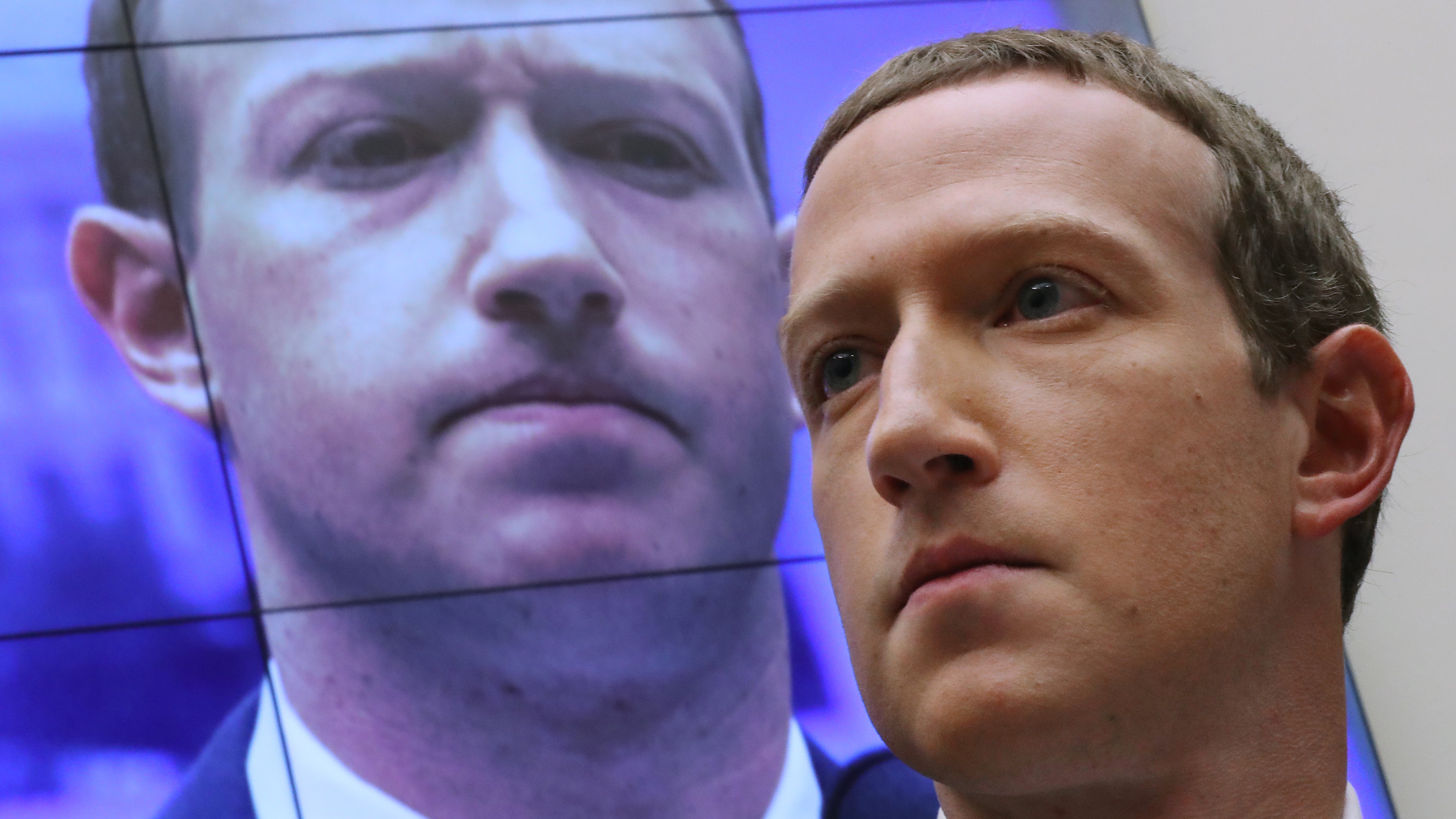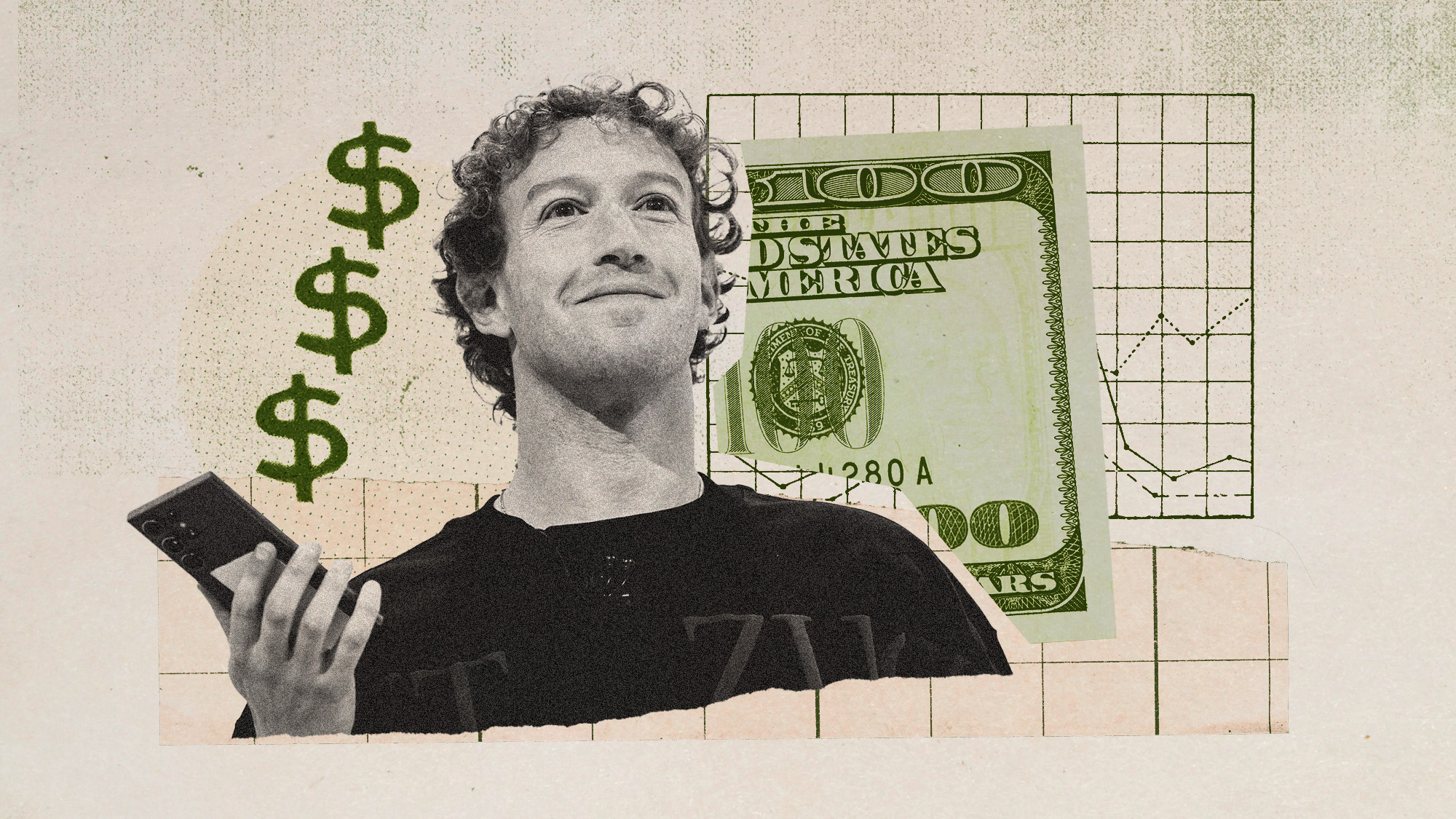Are Facebook privacy settings handing a ‘free pass’ to terrorists?
MI5 chief attacks plans to provide end-to-end encryption on social media platform

A free daily email with the biggest news stories of the day – and the best features from TheWeek.com
You are now subscribed
Your newsletter sign-up was successful
Terrorists could be given a “free pass” by Facebook if the social media giant follows through on plans to introduce stronger encryption on its network, the head of MI5 has claimed.
In his first public interview, UK spy boss Ken McCallum said plans proposed by Facebook chief executive Mark Zuckerberg would allow terrorists to plot attacks on the company’s platforms, while Facebook blocked hundreds of counter-terrorism investigations by security services.
Speaking to Times Radio, McCallum acknowledged the need for user privacy after Facebook expressed its intention to move away from its function as a digital “public square”, and instead become more like a user’s online “living room”. But the director general added that MI5’s job is to “deal with a one in a million case, where the living room is a terrorist living room”.
The Week
Escape your echo chamber. Get the facts behind the news, plus analysis from multiple perspectives.

Sign up for The Week's Free Newsletters
From our morning news briefing to a weekly Good News Newsletter, get the best of The Week delivered directly to your inbox.
From our morning news briefing to a weekly Good News Newsletter, get the best of The Week delivered directly to your inbox.
Facebook’s encryption plans mean it will no longer use algorithms to flag illegal content as messages can be viewed only by the sender and receiver. The company argues that it should be able to pass on suspicious content if security services obtain permission from the home secretary and a judge.
The MI5 head stressed security services were “not in any way seeking some form of surveillance state”, but emphasised there were “rare” occasions when it was essential security services could gain access to the contents of messages sent by those suspected of participating in illegal activities if there were concerns of “very substantial proportions”.
Decisions taken in “California boardrooms” by Facebook executives are “every bit as relevant” to security services’ ability to do their jobs “as decisions taken in Afghanistan or Syria”, he told Times Radio.
Facebook argues its end-to-end encryption will provide additional safety and security to its users, arguing it is “building strong safety measures” into the plans “including using information like behavioural patterns and user reports” to identify criminal activity.
A free daily email with the biggest news stories of the day – and the best features from TheWeek.com
McCallum’s criticism of Facebook’s encryption plans comes weeks after Home Secretary Priti Patel warned the idea could jeopardise work to combat child sexual abuse. Patel said Facebook “intends to blind itself” to the proliferation of child sexual abuse images on its platforms by preventing access to messaging content from outside parties, says the BBC.
But supporters of encryption argue that any “legally enforced” weakening of encryption algorithms could potentially be exploited by criminals.
Jenny Afia, from legal firm Schillings, said end-to-end encryption had “already prevented a lot of crime”, while Jim Killock, from Open Rights Group, said encryption was “popular” with those who want “security and protection from fraud, scams and abuse of their data”.
"It would be completely unreasonable to ban or limit everyday security for one set of people over the other,” he said.
Other encryption supporters told the BBC it provides a “secure means of communication” for “dissidents and whistleblowers” and could put them at risk if back-door access were made available to governments.
Sorcha Bradley is a writer at The Week and a regular on “The Week Unwrapped” podcast. She worked at The Week magazine for a year and a half before taking up her current role with the digital team, where she mostly covers UK current affairs and politics. Before joining The Week, Sorcha worked at slow-news start-up Tortoise Media. She has also written for Sky News, The Sunday Times, the London Evening Standard and Grazia magazine, among other publications. She has a master’s in newspaper journalism from City, University of London, where she specialised in political journalism.
-
 The ‘ravenous’ demand for Cornish minerals
The ‘ravenous’ demand for Cornish mineralsUnder the Radar Growing need for critical minerals to power tech has intensified ‘appetite’ for lithium, which could be a ‘huge boon’ for local economy
-
 Why are election experts taking Trump’s midterm threats seriously?
Why are election experts taking Trump’s midterm threats seriously?IN THE SPOTLIGHT As the president muses about polling place deployments and a centralized electoral system aimed at one-party control, lawmakers are taking this administration at its word
-
 ‘Restaurateurs have become millionaires’
‘Restaurateurs have become millionaires’Instant Opinion Opinion, comment and editorials of the day
-
 Is social media over?
Is social media over?Today’s Big Question We may look back on 2025 as the moment social media jumped the shark
-
 Social media: How 'content' replaced friendship
Social media: How 'content' replaced friendshipFeature Facebook has shifted from connecting with friends to competing with entertainment companies
-
 Fake AI job seekers are flooding US companies
Fake AI job seekers are flooding US companiesIn the Spotlight It's getting harder for hiring managers to screen out bogus AI-generated applicants
-
 Meta on trial: What will become of Mark Zuckerberg's social media empire?
Meta on trial: What will become of Mark Zuckerberg's social media empire?Today's Big Question Despite the CEO's attempt to ingratiate himself with Trump, Meta is on trial, accused by the U.S. government of breaking antitrust law
-
 What does an ex-executive's new memoir reveal about Meta's free speech pivot?
What does an ex-executive's new memoir reveal about Meta's free speech pivot?Today's Big Question 'Careless People' says Facebook was ready to do China censorship
-
 What's Mark Zuckerberg's net worth?
What's Mark Zuckerberg's net worth?In Depth The Meta magnate's products are a part of billions of lives
-
 Racist texts tell Black people in US to prepare for slavery
Racist texts tell Black people in US to prepare for slaverySpeed Read Recipients in at least a dozen states have been told to prepare to 'pick cotton' on slave plantations
-
 Social media ban: will Australia's new age-based rules actually work?
Social media ban: will Australia's new age-based rules actually work?Talking Point PM Anthony Albanese's world-first proposal would bar children under 16 even if they have parental consent, but experts warn that plan would be ineffective and potentially exacerbate dangers